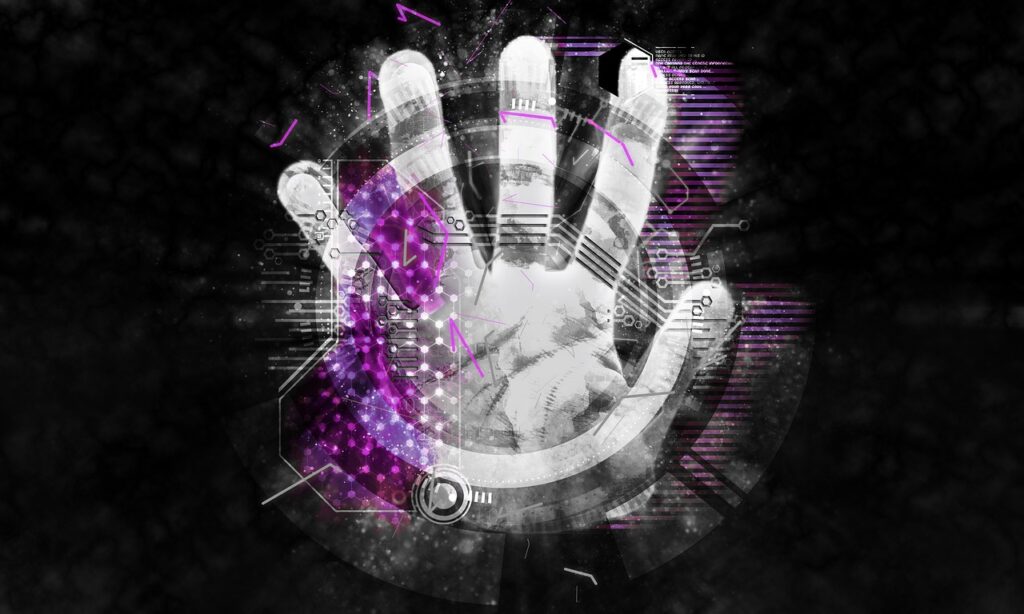
We all make mistakes online from time to time, but some of them can have serious consequences. In this blog post, we’ll look at some of the most common and risky mistakes you could be making on the web.
From clicking on suspicious links to not securing your devices and accounts, we will take a look at all the potential threats that are out there waiting for us – so hopefully you won’t fall for them!
The Dangers of Clicking on Suspicious Links
Clicking on suspicious links can be incredibly dangerous, especially if you don’t know where the link is coming from. It could lead to ransomware attacks and even identity theft. Unfortunately, these types of malicious links are becoming more common as scammers become more sophisticated in their techniques.
So it’s important to be vigilant when online and only click on legitimate sources that you trust or have previously visited before. Don’t let your curiosity get the better of you – clicking on a random link could result in serious consequences for your device or personal information!
The Risks of Using Public Wi-Fi
Public Wi-Fi spots are incredibly convenient, but they can also be incredibly risky. Connecting to public networks leaves you vulnerable to a range of cyber security threats, from hackers stealing data and accessing your accounts to malicious software being installed on your device. It’s important to take some basic steps when using public Wi-Fi, such as avoiding logging into sensitive sites like banking or shopping websites.
If you must use these types of sites, make sure that the connection is secure by looking for “https” at the start of the URL address. Additionally, always turn off file-sharing capabilities on any devices you bring with you since unsecured connections could allow other users access to your computer’s contents. Finally, it’s best practice to use a Virtual Private Network (VPN) while connected – this will provide an extra layer of protection against cyber criminals who are trying to access your information without permission.
The Hazards of Posting Personal Information Online
Posting personal information online can be dangerous. It’s important to remember that once something is posted, it can never truly be deleted and could potentially end up in the wrong hands. Whether you are posting your address or a picture of yourself, you should think twice before hitting “post.
Hackers can take advantage of any information they find on social media platforms like Facebook and Twitter, as well as other websites such as dating sites and forums. They may use this data to commit identity theft or even blackmail you for money using threats of releasing compromising photos or videos.
Additionally, if you post too much personal information about yourself online, it could make you an easy target for stalkers who want to track your every move without being noticed. So before sharing any private details with the world wide web, always ask yourself – Is this really necessary?
The Perils of Downloading pirated Software
Let’s face it, downloading pirated software is tempting. It’s free, convenient, and easy to do – so what could be the harm? Well, a lot actually. Not only is it illegal and unethical but by downloading pirated software you are potentially opening yourself up to serious security risks. The files that are available on these sites often contain malicious code such as spyware or viruses which can cause immense damage to your computer system if installed.
Additionally, many of these sites also try to trick users into giving away personal information like bank details in order for them to access the “free” downloads; this makes it very easy for hackers and cybercriminals to gain access to your accounts in an attempt at identity theft or fraud. So think twice before you download those free programs from shady websites – you may end up paying much more than just the price tag!
The Threats of Visiting Malicious Websites
Visiting malicious websites can be incredibly dangerous. These nefarious sites often contain malware that can infect your computer and access sensitive information such as bank accounts or passwords. It’s even worse if you’re tricked into downloading something from one of these suspicious sites – the file could contain a virus that will wreak havoc on your device, corrupting files and stealing data in the process.
Unfortunately, scammers are becoming increasingly sophisticated in their techniques so it’s important to always double-check the source of links before clicking them – especially those sent through email or online messages!
Additionally, never enter any personal details (such as credit card numbers) unless you are absolutely certain that the site is legitimate and secure. Keep an eye out for signs like an SSL certificate or “https” at the start of URLs when browsing online; this indicates that a website has taken extra steps to protect its users’ privacy and is likely safe to use.

The Dangers of Falling for Scams
Falling for scams can be pretty easy, especially when scammers are getting smarter and more creative with their tactics. Whether it’s a phishing email, an online pop-up ad, or a phone call from someone claiming to be from the IRS – there are plenty of opportunities out there for unsuspecting victims.
The most common type of scam is identity theft – where criminals gain access to your personal information such as bank accounts and passwords by posing as legitimate organizations or businesses. These scammers may even try to get you to give them money through fake investments and lotteries; never hand over any cash without doing thorough research first!
Additionally, it’s important to remember that if something seems too good to be true then it probably is – always double-check sources before giving away any sensitive data like credit card numbers or Social Security numbers. Be smart and stay safe – don’t let yourself fall victim to these crafty crooks!
The risks of not securing your Devices and Accounts
Not securing your devices and accounts is like leaving the door to your home wide open. Anyone can come in and take what they want, whether it’s data, money, or just access to your personal information. It’s essential that you make sure all of your devices are password protected – this means setting secure passwords on laptops, tablets, and phones as well as any online accounts such as social media sites.
Additionally, be careful when connecting to public Wi-Fi networks; these often don’t have the same security measures in place so it’s easy for hackers to gain access to anything you’re doing while connected. Finally, regularly update the software on all of your gadgets – this will ensure that they are running the latest security patches which may stop any potential cyber threats from infiltrating them in the first place!
Final words
Online risks such as malicious websites, phishing emails, and identity theft can be avoided by taking precautions such as double-checking sources before clicking, avoiding public Wi-Fi, not posting personal information, only downloading software from legitimate sources, and setting strong passwords.
